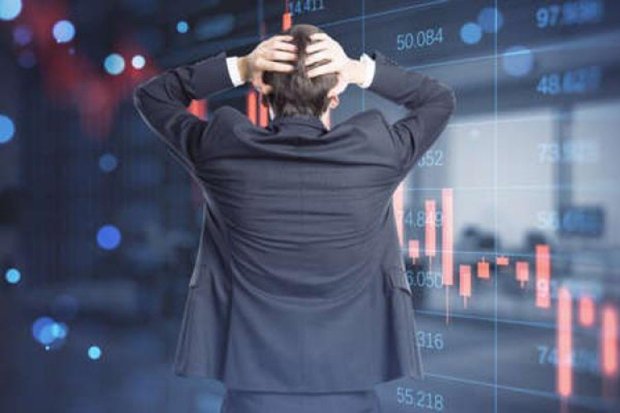Indonesia's Stock Market Turbulence and Banking Blues

The global financial markets experienced heightened turbulence as tensions escalated in the Middle East, causing concerns about global inflation. Indonesia's Composite Stock Price Index (IHSG) was not immune to this volatility, registering significant fluctuations following the extended Eid al-Fitr holiday on April 16.
Banking stocks, pivotal players in Indonesia's stock exchange, bore the brunt of this uncertainty. On April 16, as trading resumed after the holiday, several major banks witnessed notable declines in their share prices. Bank Mandiri (BMRI) saw a drop of 2.93 percent to Rp 6,652 per share, while Bank Central Asia (BBCA) experienced a 3.56 percent decrease to Rp 9,475 per share. Other banks, including Bank Negara Indonesia (BBNI), Bank Rakyat Indonesia (BBRI), Bank Pan Indonesia (PNBN), Bank Danamon Indonesia (BDMN), and Bank Maybank Indonesia (BNII), also faced declines ranging from 1.79 to 5.31 percent per share.
In response to the market turmoil, several companies, including blue-chip companies, have announced plans to conduct share buybacks to alleviate selling pressure. Notably, PT Adaro Energy Indonesia Tbk (ADRO) is set to initiate a substantial buyback program of up to Rp 4 trillion. The buyback period for ADRO shares will span 12 months starting May 16, 2024. Additionally, PT Kalbe Farma Tbk (KLBF) aims to repurchase shares worth up to Rp 1 trillion, equivalent to a maximum of 625 million shares, between May 16, 2024, and May 15, 2025.
Furthermore, PT Indocement Tunggal Prakarsa Tbk (INTP) plans to execute a share buyback valued at up to Rp 895 billion during the period from May 15, 2024, to December 31, 2024. Meanwhile, PT Saratoga Investama Sedaya Tbk (SRTG) has allocated approximately Rp 150 billion for share buybacks, with a maximum of 75 million shares earmarked for repurchase.
Despite this initial downturn, the IHSG rebounded during the opening of trading on April 17, reflecting the unpredictable nature of the market amidst geopolitical tensions. Investors remain cautious as they monitor further developments in the Middle East and their potential impact on global economic stability.

